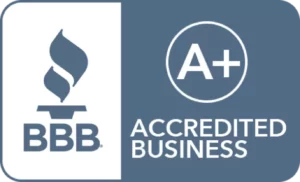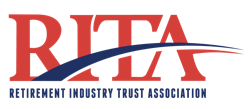A Self-Directed IRA is a qualified individual retirement account that allows retirement investors to use retirement funds for traditional and alternative investments. The Self-Directed IRA is similar to a traditional IRA, however it provides more investment opportunities. There are many pros of a Self-Directed IRA. For example, investors who choose to establish the Self-Directed IRA over the Traditional IRA are typically those who wish for more investment opportunities. Because the Traditional IRA generally restricts investors to stocks, bonds and other traditional assets, investors who wish to make real estate, private business or other alternative investments are not free to do so. We will discuss pros of a Self-Directed IRA in this article, as well as a few cons.
Pros of Using a Self-Directed IRA
Asset Diversification
Over 90% of retirement assets are invested in the financial markets. Many who use their retirement funds to make investments invest in stock. The problem with this is, when the stock market takes a dive, investors can lose a significant amount of their retirement money. However, when retirement investors invest in a diversity of assets, such as stock, real estate, precious metals and private placements, these assets are less likely to move in the same direction. Therefore, if one market performs poorly, you can fall back on your other investments.
Hard Assets that Protect from Inflation
Although we can only guess whether the threat of inflation is real, the rising costs of commodities can fuel the fear in many. During inflation, a Self-Directed IRA significantly loses its value. A Self-Directed IRA worth $400,000 during times of inflation has much less buying power. By using your retirement funds to invest in hard assets, it can act as a natural hedge against inflation. A great example is commercial real estate investments, as rent tends to increase as prices increase.
Investing Outside of Wall Street
For some investors, the ability to invest outside of Wall Street means security. As previously mentioned, assets that flow in the same direction can negatively impact your retirement funds if the market loses its value. But for others, investing outside of Wall Street means investing in assets they actually understand, such as real estate. They have a good idea of how it works, unlike the stock market, and they feel secure in owning a tangible investment. However, real estate is not the only asset outside of Wall Street that investors trust. Recent surveys show that Millennials feel more confident investing in cryptocurrency.
Tax-Deferral
Tax-deferral is essentially the concept of compounding. All of the income and gains you generate from an investment will grow in your retirement account unhindered until you take a distribution. This is a more tax-advantageous solution than using your personal funds to make investments. Ultimately, it will accumulate faster. At the time that you take a qualified distribution, at the age of 59 1/2 or older, you will most likely be in a lower tax bracket and take more of your money “home.”
Checkbook Control
A Self-Directed IRA LLC is a Self-Directed IRA with checkbook control. Checkbook control is an IRS and tax court approved structure that allows you to use retirement funds for almost any type of investment. With checkbook control, you can make investments without receiving the consent of a custodian. To make an investment, simply write a check, use a debit card or wire funds from your Self-Directed IRA LLC bank account. As a result, you can make investments in a timely manner, and because you do not need to work with a custodian, you no longer pay excessive custodian account fees. With checkbook control, you act as manager of the Self-Directed IRA LLC, which provides you with direct access to your, therefor you can make investments quickly.
Cons of Using a Self-Directed IRA
When most investors think of the Self-Directed IRA, it is likely that very few cons come into mind. However, when you establish a Self-Directed IRA, you open a world of investment opportunities, are very few cons There are many pros when establishing a Self-Directed IRA, and very few cons. In fact, the one drawback of the Self-Directed IRA is that with more investments, comes a few more rules. These are known as the prohibited transaction rules. The IRS has placed guidelines on the types of investments you can purchase with a Self-Directed IRA, as well as certain people you cannot engage with – these are known as disqualified persons.
Prohibited Transactions
The IRS only states transactions you cannot make with your Self-Directed IRA. With the emergence of new investment options, like cryptocurrency, the IRS has to continuously change its tax code. Because of this, it makes much more sense to tell investors what they cannot do.
There are two types of investments you cannot make.
- You cannot purchase life insurance
- You cannot purchase collectibles
- Works of art
- Baseball cards
- Jewelry
- Stamps
- Gems
- Certain coins
Disqualified Persons
There are transactions with certain persons that the IRS deems inherently suspicious, and are therefore not allowed. In general, disqualified persons include:
- You (IRA holder)
- Parents
- Spouse
- Children, son-in-law, daughter-in-law
This rule is to prevent you, the IRA holder, from using retirement funds to benefit your personal gains and not the retirement plan itself.
UBTI/UDFI Rules
An advantage of using the Self-Directed IRA to make investments is that, generally, the investments are tax-exempt. This is the case for Self-Directed IRA investors who do not own a business. For those who do own a business and have a Self-Directed IRA, you will be subjected to what’s known as the Unrelated Business Taxable Income (UBTI) for “gross income derived by any organization from an unrelated trade or business regularly carried on by it,” according to the IRA. As a result, if you own a restaurant, you will be subject to UBTI, as this is earned income.
Passive income, on the other hand, is not subject to the UBTI tax. For example, if you own property that you rent out to an unrelated third-party, you are generating passive income, thus will not be subject to the UBTI rules. Keep in mind, you may be subject to taxes if you buy and sell multiple real estate properties throughout the year.
Real estate can be tricky when it comes to the types of the UBTI. Unrelated Debt-Financed Income (UDFI) is a type of UBTI that involves the IRA owner taking out a nonrecourse loan in order to purchase a portion of the property. In that case, the income the property generates will be taxed.
If you do owe UBTI and/or UDFI taxes, you will also need to file an IRS form.
So while you can still see the pros of a Self-Directed IRA clearly outweigh the cons, it’s important to familiarize yourself with the nuances of a Self-Directed IRA so you don’t trigger prohibited transaction rules and to understand the requirements of the UBTI/UDFI rules if you will be the subject to them.
Get in Touch
If you have additional questions about the Self-Directed IRA that was not discussed in this article, leave a comment or fill out one of our contact forms.











